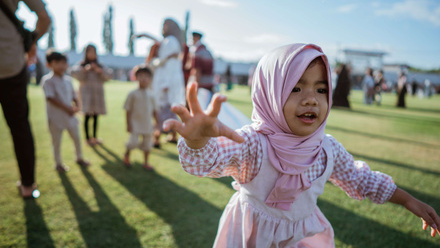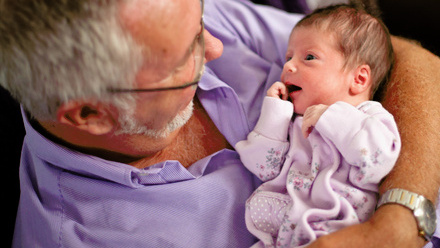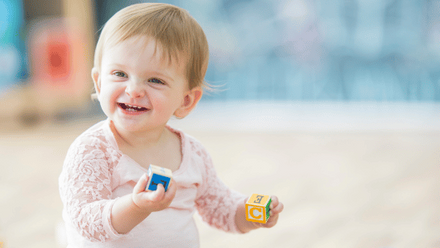The importance of parent and carer partnerships in early education and care
To many of us, our parents and carers are our heroes. They are the grown-ups we come to depend on and that support us as we grow.
Within early education and care recognising the superpowers of parents and carers is crucial to developing secure, sustained and sincere partnerships with families.
The time spent in the main home, the relationships built within it and the activities that take place within it all contribute to the home learning environment, which is shown to have one of the greatest impacts on children’s outcomes, not only for academic outcomes but also for cognitive and social emotional development.
As the research into the importance of parent and carer engagement on young children’s development continues to grow, it is becoming increasingly clear just how crucial it is for early education and care settings to build meaningful partnerships with those most influential at home.
This article will explore why parent and carer partnerships are so valuable and some of the ways we can develop authentic relationships too.
Parents and carers as partners
Parent and carer partnerships are as unique as the children we work with, so it is impossible to define the same expectations and purposes for everyone.
Broadly speaking, however, parent and carer partnerships are all about building a strong connection and effective communication between the family and the setting, with the common objective of supporting the child to develop and grow in a safe, healthy and happy environment.
But, it isn’t all about the adults! Whether a parent, carer, family member or professional, we are all united by the common interest in what is the best for children. It makes sense then that our partnerships are built on our priority to support children but also that children are included within the partnership.
The Triangle of Trust refers to “a deeper level of kinship between child, parent and early years practitioner” where attention is paid to the interconnectedness of relationships, acknowledging the special role that professionals play with children, as well as the unparalleled impact of the parent/carers at home and how professionals relate with parents/carers.
Children spend up to five years of their lives in early education and care settings, but their lifetime is influenced by family engagement and attitude, which is why it is so important to harness the power of these special relationships throughout the early years.
Developing parent and carer relationships
Let’s have a look at some of the ways we can use to build meaningful relationships with families at different stages of the child’s journey through early education and care.
Sowing the seeds in the baby room
Professionals in the baby room are likely to be the most familiar with settling children and their parents/carers into early education and care provisions for the first time. This is a huge transition for the children involved but it is also a big moment for the adults who are trusting their children to your care.
This initial communication sets the precedent for parents and carers placing trust and understanding in the role you play with their child.
- Make settling sessions personal: ask questions about routines, beyond the necessary aspects for health and safety (e.g. allergies). Ask about interests and family life to show your genuine interest in building a strong relationship from day one.
- Pay attention to emotions: some adults will be more nervous about the initial settling process than others and it’s important to show understanding and compassion where appropriate. Send photos via learning journals, or phone throughout the day with quick updates to provide reassurance for all. Whilst we should never lie, remaining positive during conversations goes a long way to alleviate anxieties about this big change.
The first shoots: parents and carers in the toddler room
Whether children are settling into the toddler room from a different setting, starting in a formal provision for the first time or moving up from the younger room, maintaining a strong relationship with parents and carers remains as important as any other time.
Children aged two to three are constantly growing and developing their sense of voice in the world. One of the most significant milestones for toddlers relates to their emotional regulation and, sometimes, this can pose a challenge for parents and carers to manage consistently with settings.
At times like these, communication throughout the Triangle of Trust is key to resolving conflict and creating a positive space for children to grow.
- Things with toddlers can change overnight! Keep conversations flowing and check-in with families on a regular basis to ensure you are meeting their needs. What might be a challenge this week could be a dream the next!
- Share practice and give advice where appropriate: if a parent or carer expresses concern for a behaviour at home, or an issue becomes a repeated challenge for both setting and home, utilise your joint expertise and talk about a solution that works for everyone.
Blooming in pre-school! Parents and carers of the ‘big kids’
The final year in early education and care is one that, as the year goes on, poses more questions about the transition to primary school. This means that a lot of attention will be paid to the relationship between parents/carers and professionals in the context of the next transition.
Whilst this is an important consideration, it is equally important to keep the focus on the development and wellbeing of children throughout the year they are still with you.
- Continue to emphasise the positives throughout your communication with parents and carers. A smile at handover goes a long way to sustaining meaningful interactions. Make sure to emphasise what’s gone well during the day, balancing this with any concerns that may need to be highlighted.
- A smooth transition to primary school is one that relies on clear understanding and solid relationships between the adults involved in supporting children. This is especially true of children who have been identified as requiring additional support. Regardless of whether a diagnosis has been established, it is crucial to provide assured advice and play an active role in the transition process for children and their families when moving into compulsory education.
Parents' and carers’ commitment to their children is lifelong. As professionals with the opportunity to influence children’s formative years, we must create meaningful connections with families to build secure foundations for their futures. Have a look at some of our other parent and carer resources under the ‘working with parents and carers’ category in the member resources.






